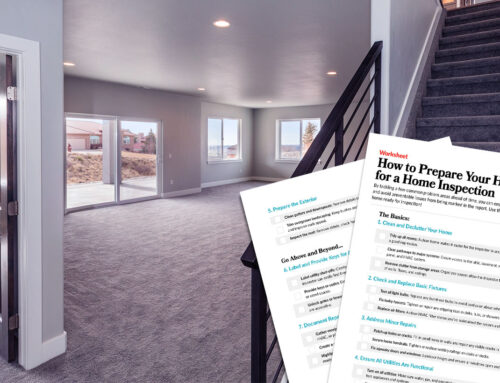
Top Home Inspection Questions – Answered!
You are not alone if you have questions about home inspections.
What’s included, how long do they take, costs and why? This is helpful whether you’re buying, selling, or considering a career in home inspection. It seems simple at first but there are more layers to understanding a home inspection. More than you would think. I’ve been inspecting homes and training new home inspectors for over 20 years. Here are the top questions explained.
What exactly is a home inspection?
The American Society of Home Inspectors (ASHI) defines it as “The process by which an inspector visually examines the readily accessible systems and components of a home and describes those systems and elements using this Standard.”
Home inspectors follow a Standard of Practice when they perform an inspection. It outlines what must be inspected. Standards can vary from state to state and among different associations. There is a range like what you might find with a home builder. One builder will meet codes to a “T” while another may choose to overbuild a deck with extras. A home inspector can choose to go beyond the minimum standards with specialized tools to perform something called a “technically exhaustive” inspection. If the minimum standards are met, there is no boundary to extensive measures.
How long does a home inspection take?
The time it takes to complete a home inspection will vary mostly due to the size and age of the home. Larger homes will typically take longer to inspect than smaller homes, but age is a factor to consider as well. Very old homes that aren’t that large can actually take longer to inspect than a new home that is twice the size. On average, home inspections take 2-3 hours to complete.
How much does a home inspection cost?
Home inspection costs will vary. The time it takes is closely related to the cost. Time is money. Home Inspectors are paid for services provided. Most home inspection companies price their standard inspection service based on different factors such as square footage, age, how many furnaces, bedrooms, bathrooms, etc. There are also add-on services that go beyond the standard home inspection. These are becoming more common and include services such as Radon or Mold inspections. These added services will add to the cost of the home inspection.
Location, location, location. The average price for a home inspection also depends on the area you live in. For example, a home inspection in rural Iowa is going to be cheaper than a home inspection in the city of Chicago. The average cost for a standard home inspection plus radon for a 1,500 square foot ranch-style home in Milwaukee, Wisconsin ranges from $475-$550.
Who pays for a home inspection?
The buyer most commonly requests and pays for most home inspections. It’s common for the buyer to include a contingency in their purchase offer that requires the completion of a home inspection. This is largely to protect their new property investment and ensure they are not diving into unknown alarming costs. A home purchase means buying any problems that come with it. These problems can add up to a large expense. It is common to think of a home inspection as a safety net that protects one from falling into a poor investment. Home Inspectors are trained on major home systems and components. This information can be helpful in a home buyer’s purchase decision. Nobody wants to be surprised by costly home issues.
In some cases, the seller may request the inspection. A pre-listing inspection gives sellers the opportunity to address any issues before putting the property on the market. Buyer inspections outnumber pre-sale inspections, especially in the current seller’s market.
Who should attend a home inspection?
Clients are encouraged to attend the inspection. This is especially helpful for first-time homebuyers. Your inspector will show you around and help you get familiar with the mechanics of the home, as well as the location of any water or gas shut-off valves. You should ask questions along the way of anything you don’t understand. Over the course of my 20 years of inspecting homes, I estimate that 99% of my clients attend the home inspection – because I encourage it. I want my clients to know their house. Also, liability for inspectors goes down when the client is at the home inspection.
Who pays for repairs after a home inspection?
Home inspectors should never tell the client “WHO” needs to pay for or repair any issues found. Undisclosed problems found during the inspection can put the buyer in a stronger position for negotiation. I would never tell my client “the furnace doesn’t work you should go back to the seller and make them pay for it.” That’s a conversation to have with the Real Estate Agent because contract and negotiation is their area of expertise. If I find the furnace doesn’t operate when tested with the normal operating controls, I document this with a recommendation that a qualified HVAC contractor evaluates the furnace and repair if needed. The Real Estate Agent and the client and the seller can decide who pays for what, Home Inspectors should keep their nose out of that part of the transaction.
Safety First!
A home inspection doesn’t just save money from unforeseen home purchase expenses. It also helps to protect your family. Safety issues can arise from dangerous handyman work, outdated electrical systems, improperly vented appliances, and more. Buyers often overlook safety. A lot of times the client’s goal is to just take money off and they ignore the safety aspects of the home.
I recently completed a home inspection on a property that had numerous electrical issues and I recommended a qualified electrician evaluate and repair the electrical issues. I follow up with the Real Estate Agent after the inspection. In this case, I learned that the client didn’t ask for any electrical work to be repaired. They only asked to have a small walkway mud jacked. Although this may seem alarming, as the Home Inspector, you cannot lose sleep over things like this that are out of your control. The role of the Home Inspector is to document what you see and make the appropriate recommendation. In this case “further evaluation and repair” by a qualified electrician.
Home inspections are a critical part of the home buying process. Helping clients understand more about their homes and their safety is a rewarding part of choosing home inspection as a career.





